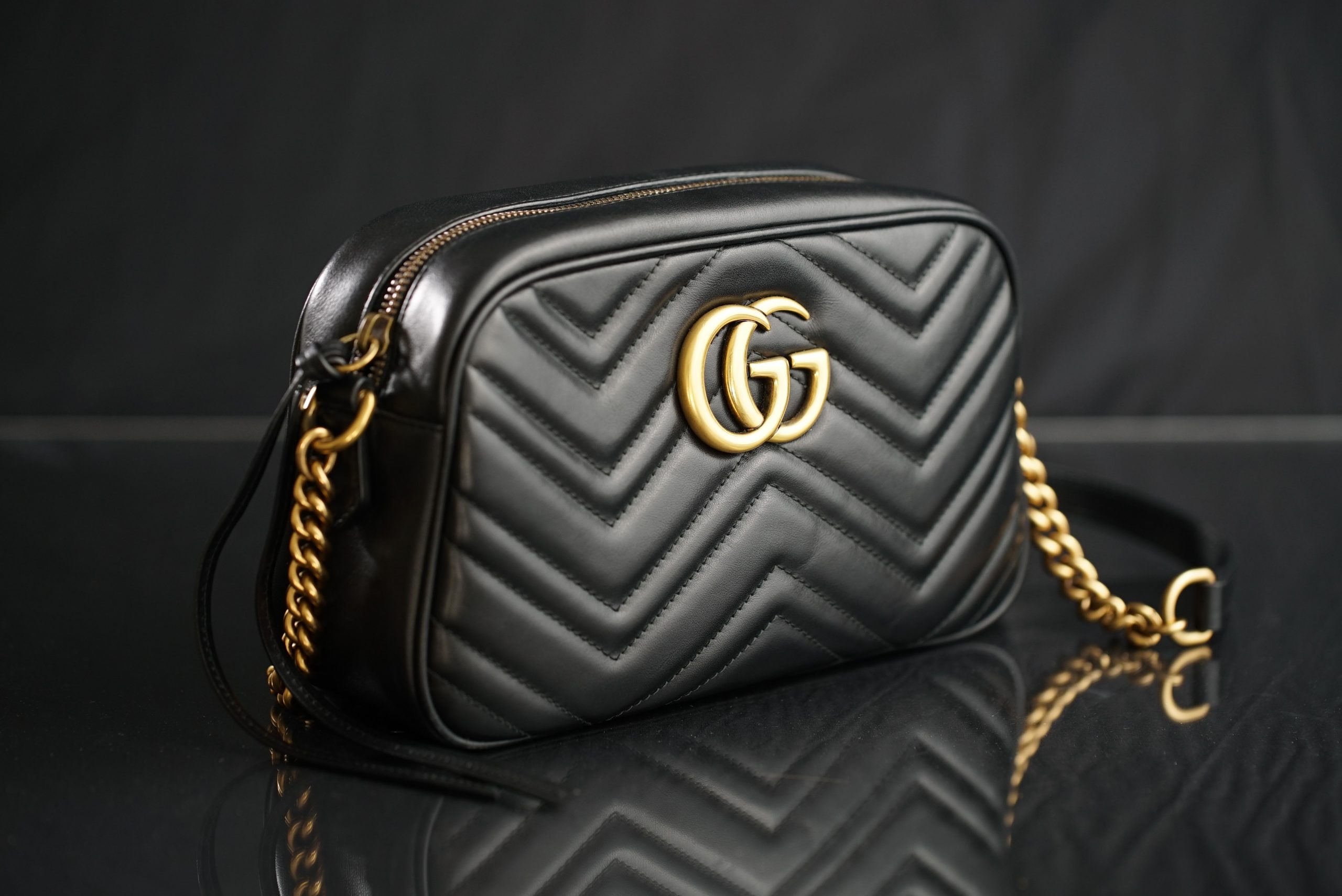For better or for worse, the name Gucci has consistently been associated with sex, scandal and drama. As of this year, the House of Gucci has existed for a century, a remarkable accomplishment given the extreme highs and lows that the brand has faced throughout its lifetime. Gucci’s tumultuous history is a large part of what has kept it relevant and interesting. Yet, with financial stability being more important than ever in the age of COVID-19, the future of the brand has come into question.
Looking at the history of Gucci, it is important to understand that before the signature double-G diamond pattern covered tracksuits, it appeared on suitcases and trunks. The story built around the beginnings of the brand is one that has been carefully crafted around the hard work of Guccio Gucci, the brand’s founder. Supposedly, Gucci worked in the Savoy Hotel in London and was so inspired by the luggage of the wealthy that he sought to create his own luggage brand.
The first Gucci store opened in Florence, Italy, in 1921, with the next opening 17 years later in Rome. Over the next three generations, the brand would be passed down and shaped into the Gucci that the world recognizes today — one that is characterized by its inspiration from the natural world and elements such as horsebits. During the 1960s, Gucci expanded outside of luggage and began forming a name for itself in the high fashion industry as it created its first pieces of clothing, a significant turn for the brand that would shape the rest of its existence.
The year 1993 arguably marks the beginning of the end of the brand as the family had come to know it. This was the year that Maurizio Gucci took over the brand and drove the company and his family’s reputation into complete chaos. Two years before his death in 1995, Gucci sold the last shares belonging to his family to Investcorp in a last-ditch effort to save the company from bankruptcy.
By this point, Gucci had divorced Patrizia Reggiani after a decade of marriage. It later came out that this was done in pursuit of another woman, Paola Franchi. Reggiano’s disdain for her husband was clear even after their marriage had ended. Those close to her recall her making her feelings plain and going so far as to inquire how one would go about hiring a hitman. Three years after Gucci’s rather unexpected death in 1995, Reggiani was convicted of hiring a hitman to shoot him. She spent 16 years in prison for organizing the murder of her ex-husband.
In the aftermath of the murder and the news of impending bankruptcy, Tom Ford was brought aboard as creative director for Gucci in 1990. His work breathed life into the dying company; Ford made use of sensuous fabrics and silhouettes and made a name for the brand through the bold choices he made at fashion shows. Most notable among his well-known and highly celebrated decisions include the Gucci G string and the red velvet suit he featured on both a male and female model for the runway. Ford is often credited with saving Gucci from itself with his work, all of which is detailed beautifully in the 11th episode of “Vogue: The 1990s.”
Given the tumultuous and well-documented history of the fashion house, it is clear why Gucci has stayed relevant throughout the past century. The obsession that many feel toward the brand and its history is made clear through any Google search that places the name Gucci and the word “murder” next to each other. The interest that the scandals surrounding Gucci, particularly Maurizio’s murder, have garnered over the past few decades have crystallized in the creation of a movie that details Patrizia Reggiani’s motives for killing her husband. The film is set to premiere in November of this year with Adam Driver and Lady Gaga playing Maurizio Gucci and Reggiani respectively.
The creation and release of the film is a testament to how the story of the Gucci family has remained relevant to this day. The presence of something as horrible as a murder within a family that had been highly esteemed and respected among elite circles almost pulls the Gucci family from the universe of the wealthy elite and reinforces the idea that even the rich are no better at denying their basest desires than the rest of us.
Such a heinous crime within a world that appears virtually spotless allows the average person to look and think, whether consciously or not, “You’re no better than me. In fact, you’re worse.” Crimes and heinous acts among elite groups of people reinforce the fact that some things have no monetary value and therefore cannot be bought — among them the ability to resist the urge to murder or, in the case of Coco Chanel, the sense to refrain from supporting the Nazi Party during World War II.
While the release of “The House of Gucci” speaks to the continuing cultural relevance of the brand, Gucci is still in a precarious financial position. The 2020 financial report for the brand revealed a significant reduction in revenue when many expected growth. However, Gucci is in good company with other brands such as Yves Saint Laurent, which saw a decrease of around 14% on its 2020 financial report. The high fashion industry, like many others, was hit hard by the pandemic. Most people initially feared that the already declining industry would be rendered entirely superfluous as people donned sweatsuits instead of formal attire in response to stay-at-home orders.
It may not be the best time to say that the high fashion industry will thrive in the upcoming years, but despite their 2020 financial reports, brands such as Gucci and Yves Saint Laurent likely have years ahead of them and those at their helm do not feel anxious about an imminent downfall. Yet, the fact remains that these brands are far from alone in their need to reevaluate how they bring in sales and will appeal to a post-pandemic society.

















